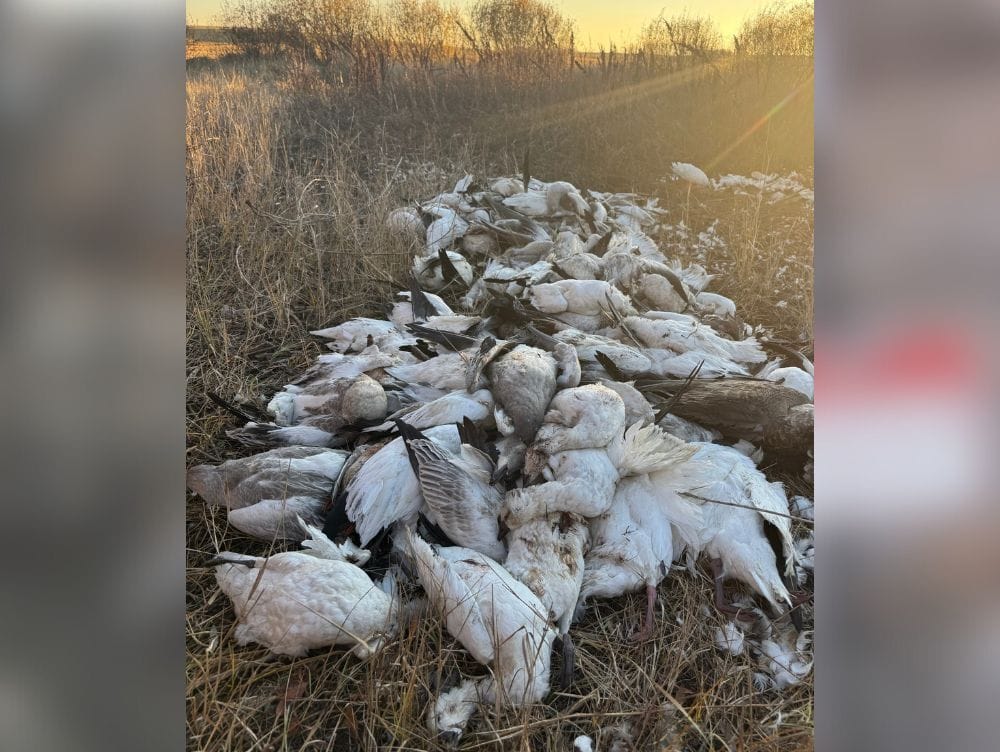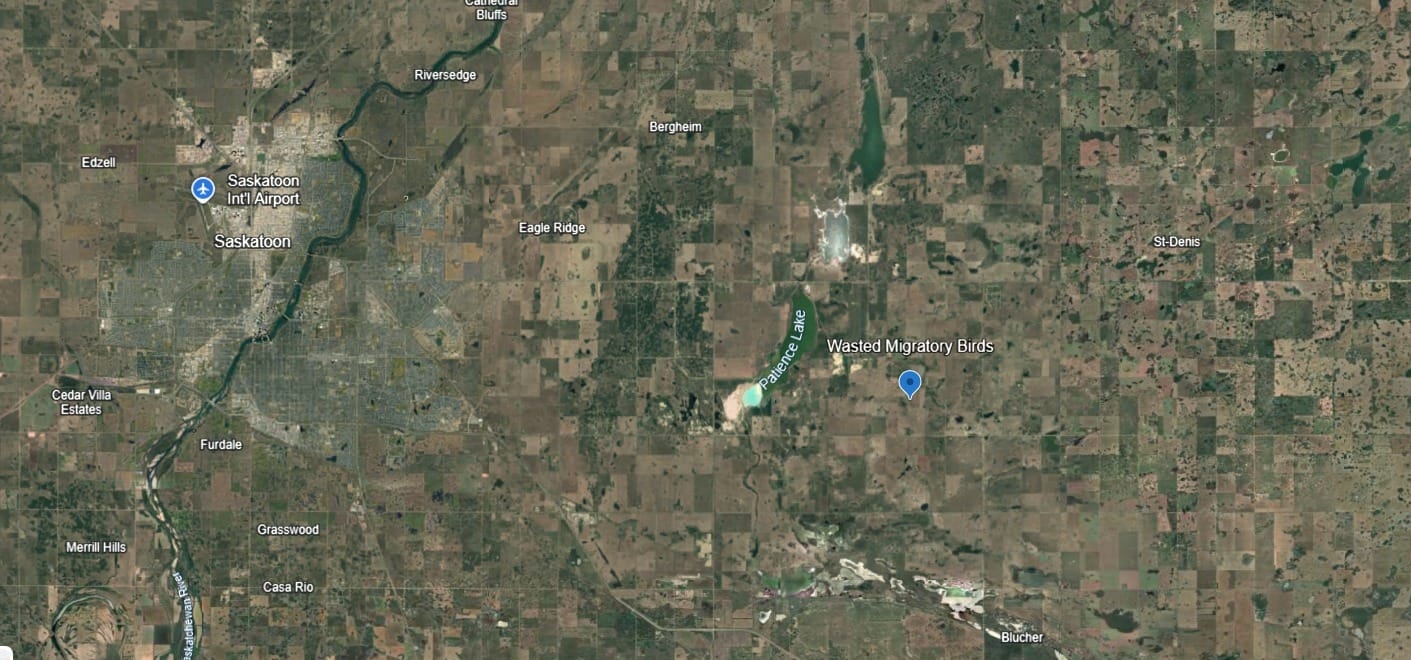
Earlier this month, a shocking discovery was made on a chunk of private land near Patience Lake, approximately 30 kilometers (19 miles) southeast of Saskatoon, Saskatchewan. The remains of 142 migratory birds, predominantly snow geese, were found illegally dumped, triggering widespread condemnation from conservationists, hunters, and local authorities. The backlash from the incident has highlighted issues of wildlife waste, unethical hunting practices, and the challenges of regulating freelance hunters in Saskatchewan as neighboring Alberta and Manitoba have shored up regulations over the past few years.
The discovery was first reported to Saskatchewan conservation officers on October 16th, who suspect the birds were killed by hunters who failed to harvest or properly dispose of the carcasses. After officials arrived on the scene, they noted that the dumped birds were comprised of 129 snow geese, 12 ducks of various species, and one Canada goose.
Photos captured at the scene show a silver pickup truck, believed to be linked to the perpetrators, prompting authorities to seek public assistance in identifying those responsible. SaskTips, an independent tip line, is now offering a $2,000 reward for information leading to arrests.

The rig authorities believe to be involved
The privately owned land was not a designated disposal site, making the act a clear violation of multiple provincial regulations. Potential charges include trespassing, littering, and failure to harvest wildlife, with fines potentially exceeding $20,000 when calculated per bird with additional surcharges.
“Unfortunately, I would say that it happens all too frequently year to year,” Chris Maier, an inspector with the Conservation Officer Service said. “It just comes down to some hunters that aren't being responsible, and then they end up wasting the animals afterwards because they don't want to deal with them.”
The incident has drawn sharp criticism from Saskatchewan's hunting and conservation communities, who see it as a betrayal of ethical hunting principles. Jordan Rowswell, an outfitter and board member of the Saskatchewan Commission of Professional Outfitters, described the act as "disgusting" while emphasizing the reputational damage to responsible hunters.
“It's an absolute waste of not just meat, but a resource,” said Jordan Rowswell, the owner of 12 Gauge Outfitting. “It gives every hunter out there a bad name.”
Many in the industry are pointing to a growing problem of what they call freelance hunters in Saskatchewan. This subset of illegal outfitting is what they, and many others believe, is leading to higher rates of incidents with situations just like this one. Licensed outfitters along with the Saskatchewan Wildlife Federation suggest that stricter regulations in neighboring provinces like Alberta's 6-day limit and Manitoba's 7-day limit for non-Canadian hunters, may be driving out-of-province and U.S. hunters to Saskatchewan, where policies are more lenient.
“We have somewhat of a rampant illegal outfitting component built into Saskatchewan now,” Saskatchewan Wildlife Federation exec Daryl Crabbe said. “Because of the restrictions that have been placed on the term licences in Alberta and Manitoba, we have seen an unprecedented increase in hunters from other jurisdictions, predominantly the United States, this year.”
Snow geese, the primary species involved, are designated as overabundant by the Canadian government, leading to liberal hunting policies to control their population. Hunters face a daily bag limit of 20 snow geese but no possession limit, allowing large numbers to be killed during extended trips. This regulatory framework, while aimed at population management, creates challenges for proper carcass disposal. Options such as freezing, donating to food banks, or burying remains are available, but incidents like this suggest that some hunters simply opt for illegal dumping instead.

The site of the wasted birds | SaskTips
The Patience Lake case is not isolated. Similar incidents of wildlife waste have been reported in Saskatchewan, and in many cases are often tied to the logistical burdens of handling large kills.
Inspector Maier clarified that while the culprits could be freelancers, non-residents (from Alberta, Manitoba, or the U.S.), or even locals, there is no evidence implicating licensed outfitters. However, the incident has fueled social media discussions, with many questioning why freelance hunting remains largely unchecked.
As Saskatchewan continues to grapple with the challenges of managing migratory bird populations and regulating hunting tourism, this case has sparked a broader conversation about conservation ethics and the need for systemic change. For now, the focus remains on identifying the perpetrators and ensuring such acts of waste and disrespect are not repeated.
Authorities are urging anyone with information to contact Saskatoon conservation officers or SaskTips and are offering a $2,000 reward for any information that would lead to an arrest and conviction.

